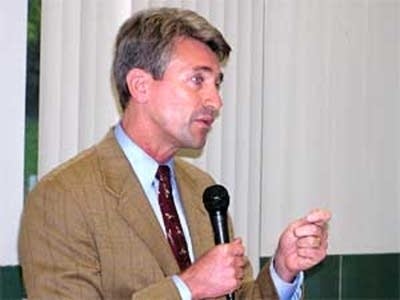Public safety tops Rybak budget agenda

As Mayor R.T. Rybak outlined his proposed budget for 2007 Tuesday, he said public safety is the city's greatest challenge. His budget would increase city efforts to fight crime. Violent crime is up over last year, and rising juvenile crime is to blame for much of it.
Rybak says the city will continue to fund its efforts designed to keep at-risk youth from getting involved in gangs. However, he says, those who break the law will be dealt with.

"We are sending a strong message to these young offenders in this city, that no matter what your age, if you commit the barbarous acts of random violence that we've seen in this city you will be held accountable," Rybak said. "We are sending that message. We are directing the police to do that. And no matter what your age, you will be held accountable."
Under Rybak's proposal, about half the increase in spending on public safety would pay for 43 new police officers. He has also dedicated $2 million over the next two years to pay for technology designed to help police catch criminals.
Create a More Connected Minnesota
MPR News is your trusted resource for the news you need. With your support, MPR News brings accessible, courageous journalism and authentic conversation to everyone - free of paywalls and barriers. Your gift makes a difference.
The city already uses a network of security cameras downtown, and Rybak says the city should expand the coverage. "In the downtown, we brought together the cameras and the radio channels and our other technologies, and it's been clear that our officers have been more effective," said Rybak. "And we've had signficant increases in prosecutions and convictions. This is working, and now it's time to expand it into our neighborhoods."
No matter what your age, if you commit the barbarous acts of random violence that we've seen in this city, you will be held accountable.
Rybak and other city officials would like to see cameras installed along West Broadway Ave. in north Minneapolis. As in downtown, the cameras would be linked to police dispatchers who can direct officers to crime scenes, sometimes while activity is still in progress.
The city is in the process of installing a high-speed wireless network that, when complete, could allow officers to observe live video from these and other cameras in their squad cars.
Rybak's budget also includes money for a "Shotspotter" system, which can detect the origin of a gunshot fired outdoors and automatically send that location to a police dispatcher.
Police Lt. Greg Reinhardt says the city has already started working on the Shotspotter system and has spent $300,000 on its implementation. He says the mayor's proposed budget would expand the coverage area.
"What the technology will allow us to do is get to the right spots a little bit quicker," said Reinhardt. "If we can't go out and hire 300 to 400 more officers, then let's use the officers that we have in a more efficient and effective manner."
Reinhardt says the cameras and Shotspotter buy more time for officers whose time is already stretched thin by responding to 911 calls. He says combined with the 43 more cops proposed by Rybak, police officers should have more time to react to what are referred to as livability or nuisance crimes.

To help pay for all these officers and crime-fighting gadgets, Rybak would raise property taxes by 8 percent. City officials say for a home valued at $225,000, the owner would pay $165 more per year.
Some say that's a small price to pay as long as the city is putting its resources in the right place.
Eric Hauge lives in the Victory neighborhood in north Minneapolis. He says he wouldn't mind a property tax increase to help fight crime. But he would like to see money directed at the root causes of the problem.
"I'd like to see more emphasis and resources being put into alternatives and opportunities for residents of the north side, and Minneapolis in general," Hauge said, "whether that be after-school programs, mentoring programs -- more emphasis on education."
Rybak says the city has managed to balance its budget despite several years of decreasing local government aid from the state. He says that's due to controlling spending, engaging in long-term fiscal planning, and paying down long-term debt. Rybak says paying down debt has freed up nearly $8 million to use for public safety.
The mayor's budget proposal needs to be approved by the city council.
